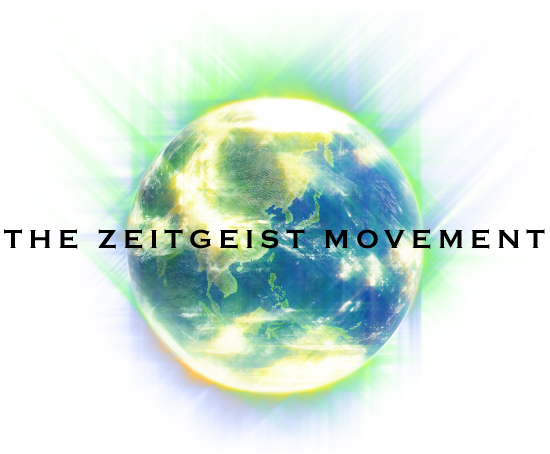The Zeitgeist Movement is like communism, democracy, and every science fiction movie and book you’ve ever seen, read, or heard about. In essence, it proposes that we, as a modern society, are steadily moving towards an apocalyptic world due to a lack of sustainability. This is through the excessive use of fossil fuels, food being deprived from entire countries, and hegemony run amok. Their proposition to reverse some these harmful consequences is to put in a giant, super computer in charge and to get rid of manual labor. No government, no countries, no boundaries; just all of us living as a species, helping each other develop and grow, while also trying to sustain the earth for our own preservation. While you may be thinking a computer has the capability to develop human emotions and start thinking for yourself, that’s mainly the product of a society that grew up watching Bladerunners, I, Robot, Eagle Eye, and the many different movies depicting computers with evolving development. This is not true, though it isn’t to say that a computer does not adapt in any sort of capacity.
Computers don’t get mad, or happy, or any other emotion that you or I experience, though they are able to pick up on a user’s habits and have been programmed to adapt to better suit said user’s needs. But they’ll never revolt against us. That is to say that we maintain the importance of virtual intelligent machines rather than artificial intelligence. The former being the one that can’t experience humanity in any capacity, the latter able to artificially experience humanity and thus use it disastrously.
The way this future would get rid of manual labor would be to replace workers with machines. This would mean food, water, gas (or an alternative energy source), and other such essentials would not cost anything. The only way to do such would be to regulate and ration it off so that no one is able to abuse the amount they consume. And of course this isn’t to say that there would be any more jobs, or that work would be useless—though it very well might be for many. Rather, The Zeitgeist Movement promotes the idea of more intellectual vocations and ventures that, as opposed to manual labor, require mental labor. This includes writing, teaching, doing art, architecture, engineering, and other various jobs that would, for the most part, require a college degree or an advanced education. The hard part, you would think, would be making education an integral part within society, and the only way that can happen is if education is either cheap or free. And The Zeitgeist Movement proposes just such a prospect: free education, free healthcare, free essentials.
By now you’re probably thinking that either it sounds too good to be true and thus implicitly mistrust the entire movement, or you’ve fallen in love with the idea and can’t wait for it to happen. It’s an entire restructuring of the foundation not only of a few countries but the entire world. Such a feat seems nigh impossible, much less sustainable and doable for an extended period of time. We’ve grown up with history books and news clippings telling us of how volatile and cyclical the world is, how we’re only going to repeat history, and yet this movement espouses an ideology that would put an end to all the hostilities.
But there’s only one contingency, which is the linchpin to making this entire system work. While The Zeitgeist Movement mollifies criticism about their system by claiming it would work based on the scientific method, using practical, logical, and utilitarian methods to conduct living conditions of the planet and its inhabitants, the problem rests in that there is no such thing as a scientific method.
Sure we teach all of our kids in grade school about the scientific method, and how to go about conducting an experiment, but it only works in a very limited scope, and generally doesn’t allow for human ingenuity and thinking-outside-of-the-box, all of which are responsible for such discoveries and inventions that allow us to view something at the same time as several million others at the same time on the internet. There is no scientific method that explains any sort of logical step that goes from usurp foundation of every society, replace it with a computer, and then prints out utopia on gloss paper to be framed and mounted on everyone’s wall, reminding them that they now live in a perfect society. Rather, the scientific method helps little kids make chocolate volcanoes and discover why a magnet works for science fairs and class assignments. To run a society based on that model would fail, and leave such a massive veil that might not be reparable.
The Zeitgeist Movement, as well intentioned as it is, and as ingenious as it may seem at times, with practically airtight suggestions and reasoning, cannot sustain because it is based off a formula that does not account for variables in as expedient a process as it would need to in order to account for global rule. It’s not a question of our society’s unwavering slavery to hegemony and patriarchal idealism, both of which have their flaws, but rather The Zeitgeist Movement won’t work because its foundation is nonexistent. And while this movement and others like it have started to garnish popularity with the rise of Occupy Wall Street, people should remember not to stack more idealism and ideology onto a system that already operates on idealism and ideology, since invariably much of what OWS stands for is the dismemberment of such idealism and to again fight for the people with the use of people, and not machines.
The Zeitgeist Movement,




